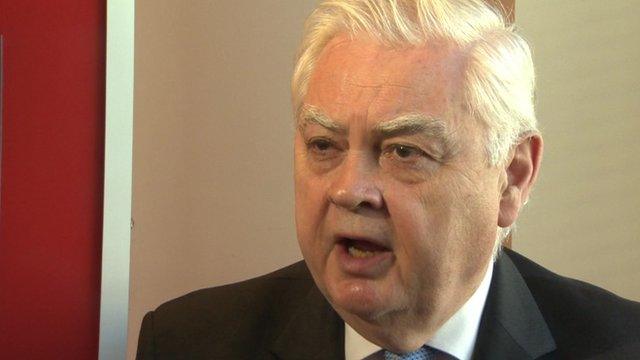Brexit 'not a disaster' for Grimsby, says Norman Lamont
- Published
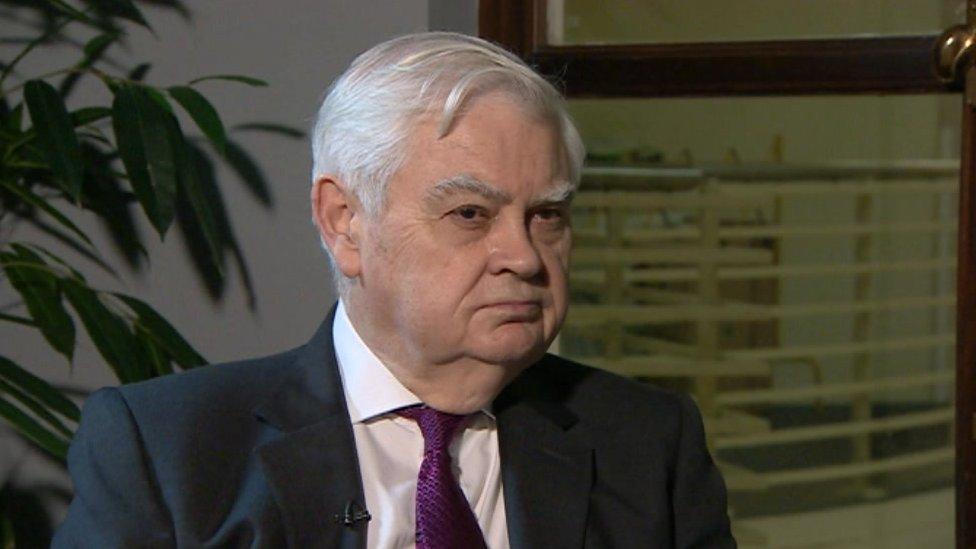
Former Conservative MP Norman Lamont spent his teenage years in Grimsby
Brexit will "not be a disaster" for Grimsby, former Chancellor Norman Lamont has claimed.
His comments come after the town's fish processing industry asked for a special free trade status in the ports of Grimsby and Immingham post Brexit.
Nearly 70% of people living in North East Lincolnshire voted to leave the EU in the 2016 referendum.
Lord Lamont, who voted for Brexit, said he believed the town would continue to thrive after the UK leaves the EU.
The ex-Conservative MP, who was brought up in the town, said: "Grimsby is a port. Trade will continue to flow in both directions.
"I don't believe Brexit for one minute is going to be a disaster. There are lots of opportunities out there.
"I think probably in 10 years time people will even forget we were even members of the European Union."
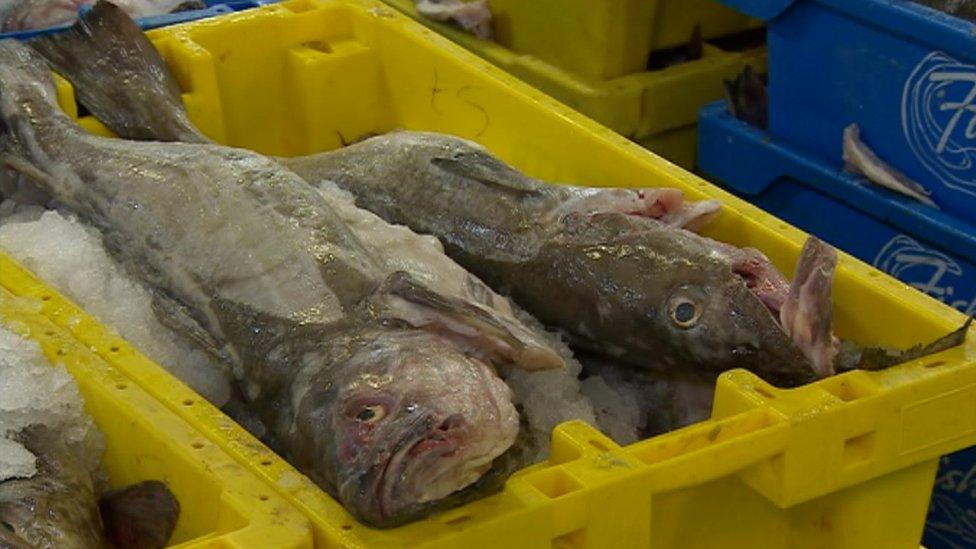
About 15,000 tonnes of fish enters the town's port every year, of which 80% comes from Iceland
Earlier this month, Seafood Grimsby and Humber, a group representing fish processing businesses in the county, called for dispensation to ensure no additional taxes or import duties.
According to the Grimsby Fish Market, which is responsible for selling catch to businesses, about 15,000 tonnes of fish enters the town's port every year, of which 80% comes from Iceland. The rest is imported from Norway, the Faroe Islands and other countries, as well as nationally and locally.
MP for Cleethorpes Martin Vickers said: "We're not asking for special treatment for all ports.
"The idea that's been floated by Seafood Grimsby and Humber is that, perhaps in tandem with a free port application by ABP, we have some sort of reduced tariffs for imports through Grimsby and Immingham.
"In other words we're fighting our corner for what's best for the ports that serve our area."
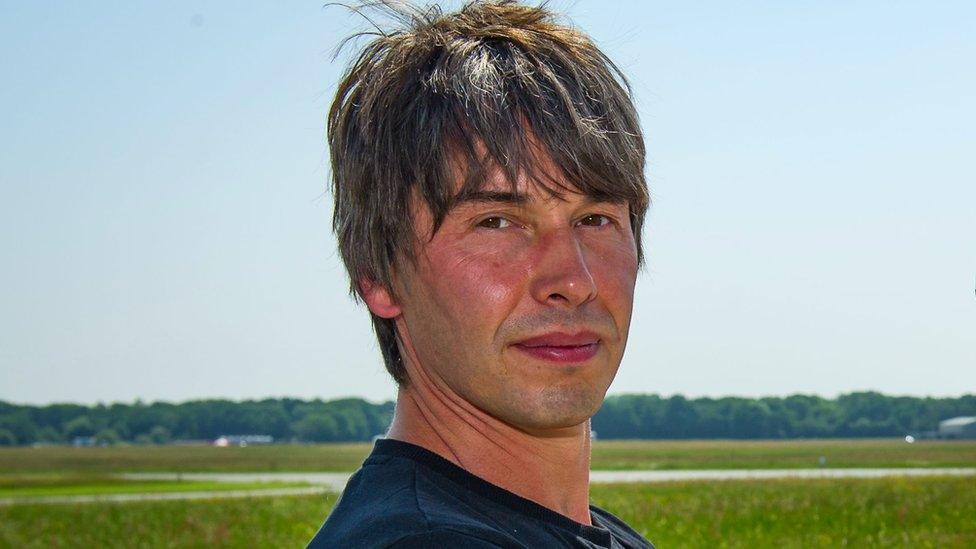
Professor Brian Cox is among those criticising calls
The proposal has been criticised by some including scientist Brian Cox and actress and writer Emma Kennedy.
Allow X content?
This article contains content provided by X. We ask for your permission before anything is loaded, as they may be using cookies and other technologies. You may want to read X’s cookie policy, external and privacy policy, external before accepting. To view this content choose ‘accept and continue’.
Allow X content?
This article contains content provided by X. We ask for your permission before anything is loaded, as they may be using cookies and other technologies. You may want to read X’s cookie policy, external and privacy policy, external before accepting. To view this content choose ‘accept and continue’.
Professor Tim Lang, a food policy expert at City University, said: "Just to say we'll go to a free port I don't think it's going to resolve it. How? Who you going to trade with? How's it going to be done?"
The Department for Exiting the European Union said it was "pursuing the best deal for our fishing communities when we leave the EU".
"As part of this, we are committed to securing tariff-free frictionless access for goods and services into the European market to help maintain a sustainable and profitable industry."
- Published3 August 2017
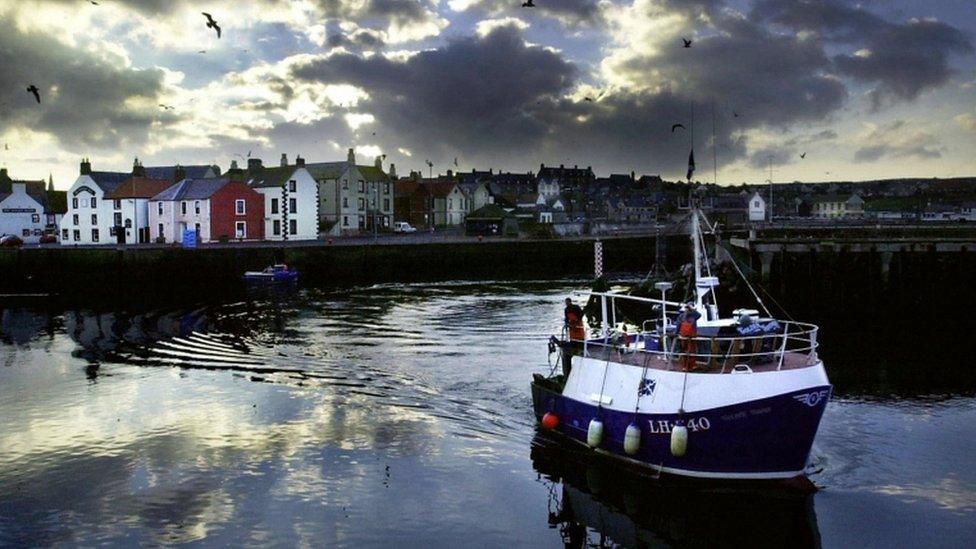
- Published17 November 2018
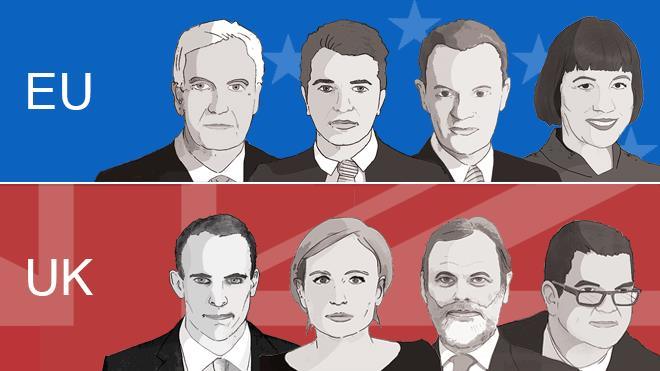
- Published29 March 2017
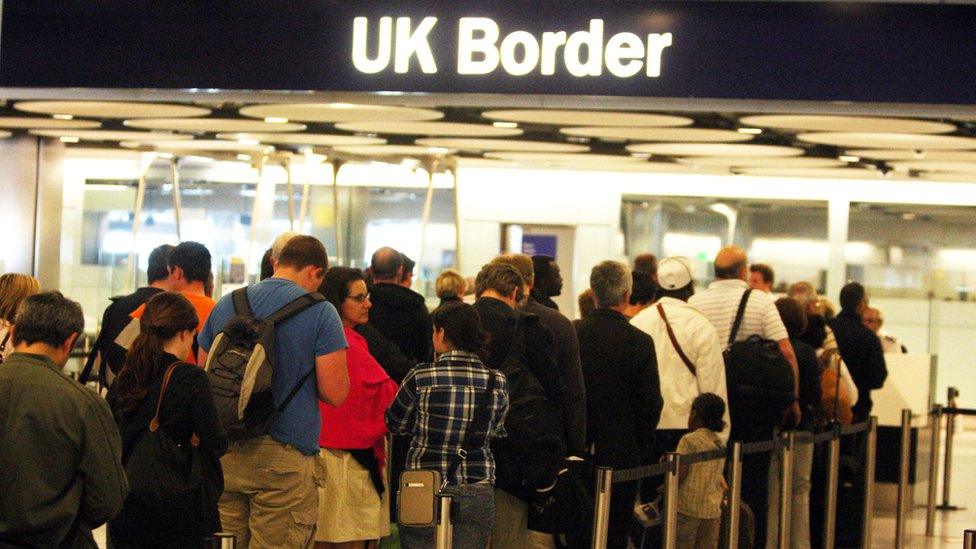
- Published2 March 2016
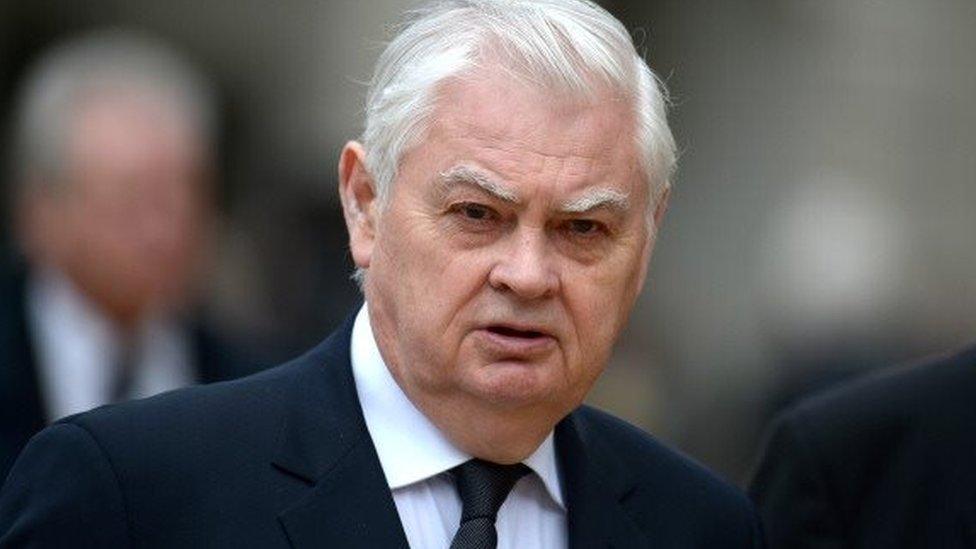
- Published9 May 2013
